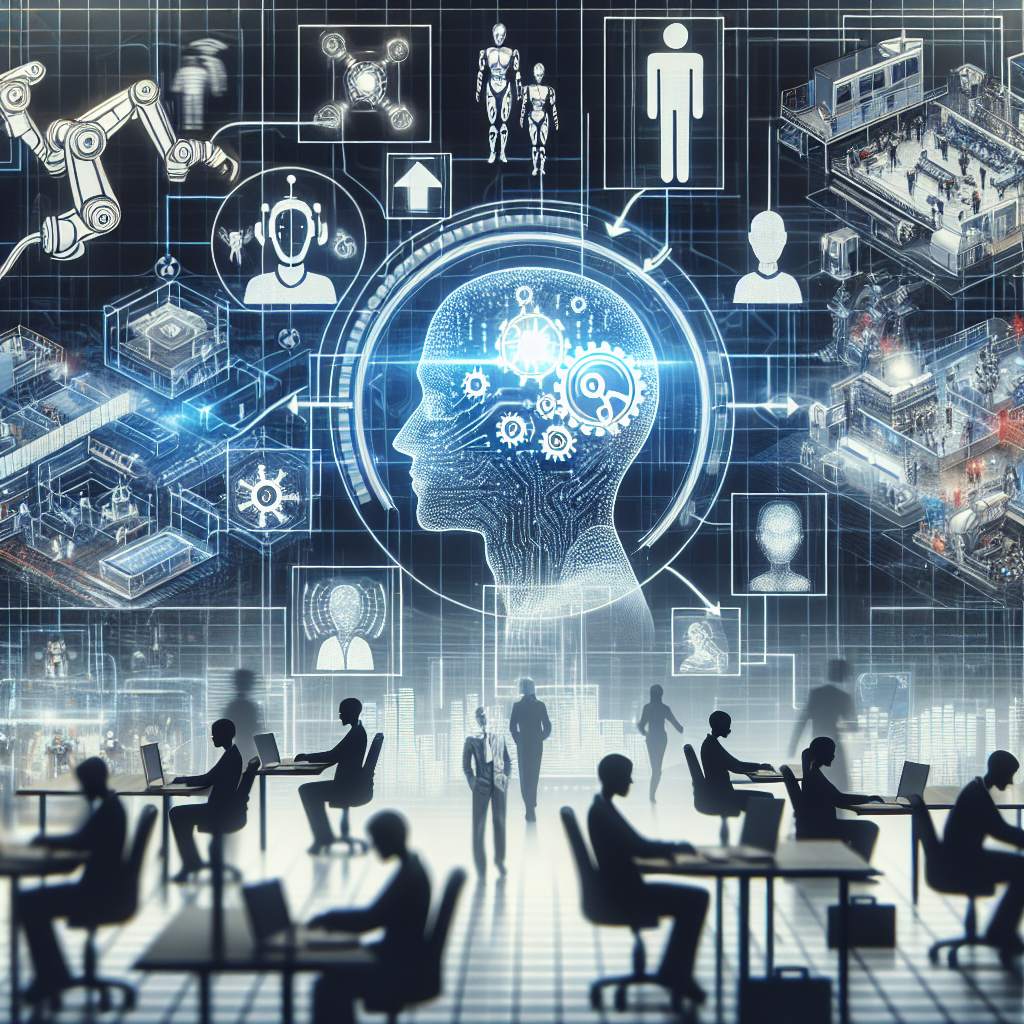Artificial General Intelligence (AGI) is a topic that has been gaining increasing attention in recent years as advancements in technology continue to push the boundaries of what is possible. AGI refers to a level of artificial intelligence that can perform any intellectual task that a human can do. This includes tasks such as learning, reasoning, problem-solving, and understanding natural language.
The development of AGI has the potential to revolutionize many aspects of our society, including the way we work. With the ability to perform a wide range of tasks more efficiently and accurately than humans, AGI has the potential to significantly impact the job market and the future of work.
In this article, we will explore how automation driven by AGI will impact the job market, what industries are most at risk, and what steps can be taken to prepare for this technological shift.
Impact of AGI on the Job Market
The development of AGI has the potential to automate a wide range of tasks that are currently performed by humans. This includes tasks in industries such as manufacturing, transportation, healthcare, and customer service. As AGI becomes more advanced, it is likely that more and more tasks will be automated, leading to significant changes in the job market.
One of the key impacts of AGI on the job market is the potential for job displacement. As tasks are automated, many workers may find themselves out of a job as their skills become obsolete. This is particularly concerning for workers in industries that are highly susceptible to automation, such as manufacturing and transportation.
However, it is important to note that while some jobs may be displaced by automation, new opportunities may also be created. As AGI becomes more prevalent, there will be a growing demand for workers with skills in areas such as AI programming, data analysis, and machine learning. This presents an opportunity for workers to reskill and adapt to the changing job market.
Industries at Risk
While all industries are likely to be impacted by the development of AGI to some extent, there are certain industries that are more at risk of job displacement than others. Industries that rely heavily on repetitive tasks or manual labor are particularly vulnerable to automation. This includes industries such as manufacturing, transportation, and customer service.
According to a report by McKinsey & Company, up to 800 million jobs worldwide could be displaced by automation by 2030. This represents around 16% of the global workforce. Industries that are at high risk of job displacement include manufacturing, food service, and retail.
However, it is not just low-skilled jobs that are at risk of automation. Even high-skilled professions such as law, finance, and healthcare are not immune to the impact of AGI. Tasks within these industries that are routine and repetitive in nature are likely to be automated, leading to changes in the way these industries operate.
Preparing for the Future of Work
As the development of AGI continues to progress, it is important for individuals and organizations to prepare for the future of work. This includes investing in education and training programs that help workers develop the skills needed to thrive in a rapidly changing job market.
One way to prepare for the impact of AGI on the job market is to focus on developing skills that are less susceptible to automation. This includes skills such as critical thinking, creativity, and emotional intelligence. These skills are difficult to replicate with AI, making them valuable in a world where automation is becoming increasingly prevalent.
Another way to prepare for the future of work is to invest in lifelong learning. As technology continues to evolve, workers will need to continuously update their skills and knowledge to remain competitive in the job market. This may involve taking online courses, attending workshops, or pursuing advanced degrees in fields such as AI and machine learning.
FAQs
Q: Will all jobs be automated by AGI?
A: While it is possible that many jobs will be automated by AGI, not all jobs are at risk of automation. Jobs that require human creativity, critical thinking, and emotional intelligence are less likely to be automated.
Q: How can workers prepare for the impact of AGI on the job market?
A: Workers can prepare for the impact of AGI by developing skills that are less susceptible to automation, investing in lifelong learning, and staying up-to-date on technological advancements in their industry.
Q: What industries are most at risk of job displacement due to automation?
A: Industries that rely heavily on repetitive tasks or manual labor are most at risk of job displacement due to automation. This includes industries such as manufacturing, transportation, and customer service.
Q: Will automation driven by AGI lead to a decrease in overall employment?
A: While some jobs may be displaced by automation, new opportunities may also be created. It is possible that automation driven by AGI could lead to a shift in the types of jobs available, rather than a decrease in overall employment.
In conclusion, the development of AGI has the potential to significantly impact the job market and the future of work. While job displacement is a concern, there are also opportunities for workers to adapt and thrive in a world where automation is becoming increasingly prevalent. By investing in education and training programs, developing valuable skills, and staying up-to-date on technological advancements, workers can prepare for the changes that AGI will bring to the job market.

